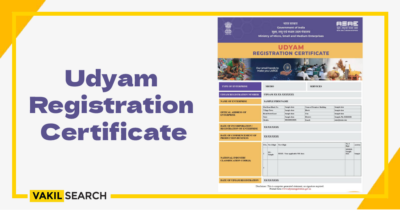In this article, we will learn about the provisions that NRIs must be aware of before starting their investment journey in India.
NRI is the abbreviation used for Non-Resident Indian to indicate the Indian population presently stationed abroad. NRI investments are granted in real estate, mutual funds, and various related industries.
You should note that the NRI bodies follow the policies mentioned under the FEMA Act to regulate each stock market investment.
NRI investment approval is defined as a liberal regulation allowing investment of up to 100% of the equity and comprehensive repatriation benefits in commercial ventures in large-scale industries hosted by OCBs or Overseas Corporation Bodies and NRIs.
What Is the Process for Investment Approval for NRI?
NRIs are eligible for investment in the Indian industrial sector. Still, they need to abide by the guidelines stated by the FEMA Act. NRIs emerge as beneficiaries of the lucrative equity pool in India as they decide to participate in the country’s economic development by investing their money in stock markets.
Following the guidelines surfaced by the FEMA, NRIs have to secure a Portfolio Investment Scheme or PI approval from none other than the Reserve Bank of India to successfully invest in the country’s secondary market successfully. This step is compulsory as the RBI has been entrusted with controlling and monitoring responsibilities associated with all transactions involving NRI dematerialisation accounts.
NRIs who wish to initiate a Demat account must know they are required to gather PIS approval. This can be solemnised either by approaching the DP at their offices when the concerned person physically arrives in India or through an online method. We have discussed online and offline proceedings in the next section of this article.
Online Method
The non-resident Indians who want to launch their new Demat account from abroad can refer to the online method. Firstly they need to register their account creation request via the broker’s online portal.
When the request reaches an office coordinator who looks after the virtual applications, he approaches the applicants. He intimates them to fill up the new account opening form. An OVD list is given to the NRI customer following whom they submit their documents. After the details are entered, the documents must be attested from their domestic bank or via the Indian Embassy stationed in their nation.
The DP’s agent collects this account opening request form and the attested documents through courier service. The candidate’s request is processed, and the Demat account is created upon successful approval.
Offline Method
To open an investment-ready account offline, the NRIs must come to India. Generally, they arrive at the closest office of their broker or fill out the account request form taking assistance from the sourcing staff.
The official Valid Documents list has to be checked next to get an idea of which papers are needed to be produced. A representative of the DP scrutinises the submitted file against the original document, upon which the NRI customer is eligible for investment. The concerned party may even walk into agencies stationed overseas and forward their filled application form to their closest bank branch or broker’s office.
Special Provisions for NRI Investment
Chapter XIIA of our Income Tax Act declares the special provisions involving definite investment returns of NRIs. In addition, Section 115D tells us about the particular memorandums related to evaluating the investment assets of all the NRIs.
Long-term capital returns and all investment income or gains are subjected to provisions under Section 115E of the Income Tax law. This section describes that capital gain is invalid on transfers involving foreign exchange assets in particular cases.
The NRIs are not expected to file their ROI or return on investments when their cumulative gain comprises only the investment benefits, or long-drawn capital returns and tax has been appropriately charged from their source of income. This is under Section 115G of the Income Tax Act.
Even when the individual decides to settle in India, the benefits are still credited to his account as per section 115H.
Repatriation of Dividends
Indian government allows free repatriation of dividends once all the levied taxes against the granted stock exchanges are paid apart from a few chosen industries. The repatriation of dividends in the consumer goods sector is permitted only on total foreign exchange profit.
Again, this scheme is active during a starting phase of 7 years counted from the day of onset of production. There remain procedural standards for retrieving RBI consent for the expulsion of Branch monetary profits secured by a national company. For this, the enterprise must hold not less than 40% equity.
Foreign Investment Promotion Board (FIPB)
This is a specific executive board enforced by the Indian government under the Ministry of Commerce to discuss official terms with reputed international companies and permit direct foreign capital investments in particular sectors.
Operational responsibilities of the FIPB consist of:
- Expeditious approval of investment proposals.
- Establishing relationships with and requesting selected MNCs to invest in our country, evaluating all the active established businesses and start-up ventures.
- To analyse the performance of the board-approved projects. The FIPB give you singular window clearance irrespective of the specifications of project considerations proposed by it. Standard application forms are not recommended; the entrepreneurs are advised to talk with the board directly.
Udyam Registration Process Under MSME
- Visit the official website of Udyam, ending with the hyperlink extension: gov. in.
- Enter your Aadhar number and official name as mentioned in the Aadhar card and select the option ‘Generate one-time password’.
- In the next stage, your PAN card details are scrutinised.
- Once verification is done, you are ready to fill out the Udyam registration form. A business looking forward to this procedure is referred to as Udyam.
- After Aadhar details are checked, Udyam Registration Certificate is handed over to you.
Conclusion
You are assigned a permanent registration ID as you complete the registration formalities. An online certificate is issued with your name. This certification is equipped with a dynamic, quick response code that gives you minute details about the registered business and the official website of the Udyam portal: https://msme.gov.in/. This registration grants you permanent status, so there is no need to worry about its renewal.
Penalties have been set for deliberate attempts of suppression related to elf-approved information and figures. The fine can sum up to ₹1000 during 1st conviction. For subsequent convictions, fines remain less than one thousand rupees and may cost you a hefty penalty of ₹10,000.
Also, Read:










